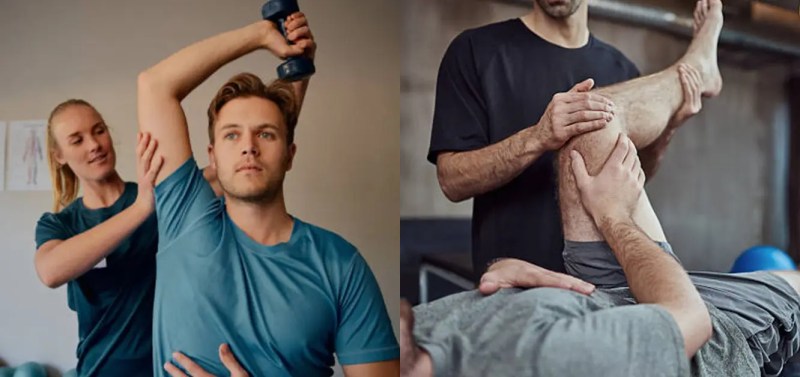6 Simple Recovery Methods After Training
Here’s a look at several excellent muscle recovery techniques that are designed to minimize the amount of downtime required post workout. Note that they are all simple and commonly overlooked! If you are ignoring these methods prior to choosing “fancier” recovery methods such as cryotherapy, cupping, etc. then you are missing out from a major part of healing.
Sleep 8+ Hours
Sleep is considered the foundation behind all recovery due to it’s importance for athletic performance and wellbeing. In fact, sleep deprivation has been shown to have significant negative effects on mood, metabolism, performance, immune and cognitive function. It is important to consider sleep hygiene (turning off electronics 1-2 hours before bedtime, regulating anxiety through meditation or mindfulness, limit afternoon caffeine intake, avoid late naps in the day, establish a consistent sleep/wake pattern ) in order to maximize the benefit. People who intensely exercise need more rest and time to recover than the average person!
Eat Plenty of Food
Promoting a healthy diet allows your body to have the proper fuel and nutrients to keep on going. You can find a lot of advice online to on what to eat post workout- which can get confusing! To keep it simple, research shows that 20-40 grams of protein post workout is enough to maximize muscle growth, though this is dependent on gender and sport! Apart from protein, having an overall balanced diet can ensure you don’t develop any nutrient deficiencies that could impair your muscle’s abilities to recover. It is important to consult a Sports Nutritionist for in-depth Nutrition consulting if you are looking to make any significant changes!
Drink Enough Water
Dehydration impairs your muscle’s ability to repair themselves. In fact, our body is 55-60% water! The American College of Sports Medicine recommends drinking 16-24 ounces for every pound lost during exercise. One of the most common signs of dehydration is fatigue. When you are dehydrated, your blood volume is decreased and your heart has to work harder in order to pump blood to all the parts of the body. This fatigue not only hinders recovery but feeling lethargic also reduces your motivation for the next workout!
Active Recovery
One of the best ways to heal is through active recovery! For example, if you’re sore from a heavy lifting session, go through some full body movements without any weight and move your joints through all of their full range of motion. This allows your body to release built up lactic acid and minimize post-exercise stiffness by promoting blood flow to your joints and muscles. Stand up and do some active stretching!
Avoid Alcohol and Other Stressors
Consuming alcohol impairs your muscles’ ability to replenish Glycogen after endurance exercise and impairs protein synthesis in your muscles, leading to slower recovery and diminished athletic performance. There are also many studies demonstrating a correlation between increased alcohol consumption leading to an increased risk for athletic injury. When a heavy fitness routine and strict training is at play, optimal recovery and the use of alcohol are rarely a good match!
Physical Therapy!
This is my personal favorite, but I might be a bit biased! Come in for some manual therapy, deep tissue massage, and stretching in order to get back to training feeling great! We are always here to support you in your recovery, whatever that may mean for you!


